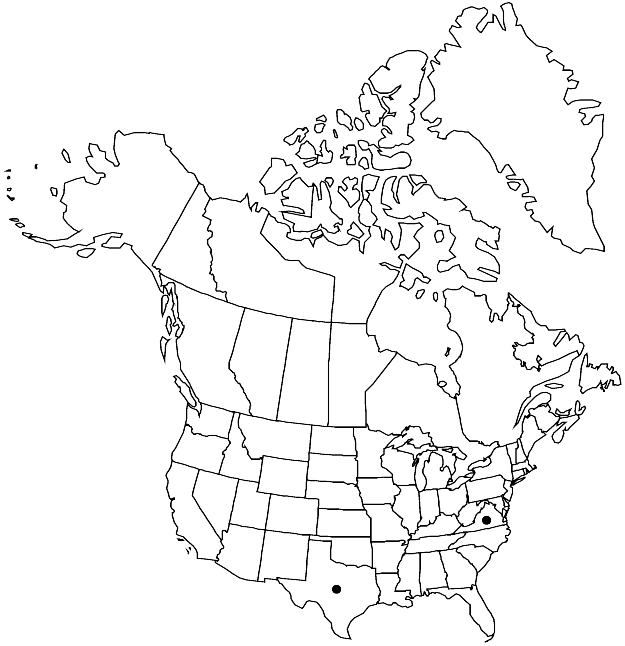Difference between revisions of "Myagrum perfoliatum"
Sp. Pl. 2: 640. 1753.
IntroducedIllustrated
Treatment appears in FNA Volume 7. Treatment on page 569.
FNA>Volume Importer |
imported>Volume Importer |
||
| (6 intermediate revisions by 2 users not shown) | |||
| Line 6: | Line 6: | ||
|place=2: 640. 1753 | |place=2: 640. 1753 | ||
|year=1753 | |year=1753 | ||
| + | }} | ||
| + | |special_status={{Treatment/ID/Special_status | ||
| + | |code=I | ||
| + | |label=Introduced | ||
| + | }}{{Treatment/ID/Special_status | ||
| + | |code=F | ||
| + | |label=Illustrated | ||
}} | }} | ||
|basionyms= | |basionyms= | ||
| Line 22: | Line 29: | ||
|habitat=Roadsides, waste grounds, disturbed sites | |habitat=Roadsides, waste grounds, disturbed sites | ||
|distribution=Tex.;Va.;s Europe;sw Asia;introduced also in nw;s Africa;Australia. | |distribution=Tex.;Va.;s Europe;sw Asia;introduced also in nw;s Africa;Australia. | ||
| + | |introduced=true | ||
|tables= | |tables= | ||
|references= | |references= | ||
| Line 30: | Line 38: | ||
-->{{#Taxon: | -->{{#Taxon: | ||
name=Myagrum perfoliatum | name=Myagrum perfoliatum | ||
| − | |||
|authority=Linnaeus | |authority=Linnaeus | ||
|rank=species | |rank=species | ||
| Line 44: | Line 51: | ||
|publication title=Sp. Pl. | |publication title=Sp. Pl. | ||
|publication year=1753 | |publication year=1753 | ||
| − | |special status= | + | |special status=Introduced;Illustrated |
| − | |source xml=https:// | + | |source xml=https://bitbucket.org/aafc-mbb/fna-data-curation/src/2e0870ddd59836b60bcf96646a41e87ea5a5943a/coarse_grained_fna_xml/V7/V7_920.xml |
|tribe=Brassicaceae tribe Isatideae | |tribe=Brassicaceae tribe Isatideae | ||
|genus=Myagrum | |genus=Myagrum | ||
Latest revision as of 22:37, 5 November 2020
Stems branched at or distal to middle, rigid, 2–5(–6) dm. Basal leaves (withered by anthesis); shortly petiolate; blade oblanceolate, 2–7 cm × 5–15 mm. Cauline leaves sessile; blade oblong to lanceolate, (1–)1.5–6(–8)cm × (3–)5–20(–25) mm (smaller distally), apex acute or obtuse. Fruiting pedicels 3–5 mm, (much wider distally, hollow). Flowers: sepals 2.5–3.5 × 0.6–1.4 mm; petals 3–5 × 0.7–1.4 mm, base attenuate; filaments 2.5–3.7 mm; anthers 0.5–0.7 mm. Fruits 4.5–7.5(–8.5) × 2.5–4.5(–5) mm; style (0.8–)1.2–2 mm. Seeds 2–3 × 1–2 mm. 2n = 14.
Phenology: Flowering Apr–Jun.
Habitat: Roadsides, waste grounds, disturbed sites
Distribution

Introduced; Tex., Va., s Europe, sw Asia, introduced also in nw, s Africa, Australia.
Discussion
Selected References
None.
Lower Taxa
None.
